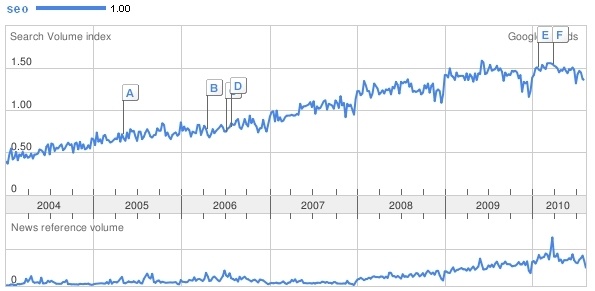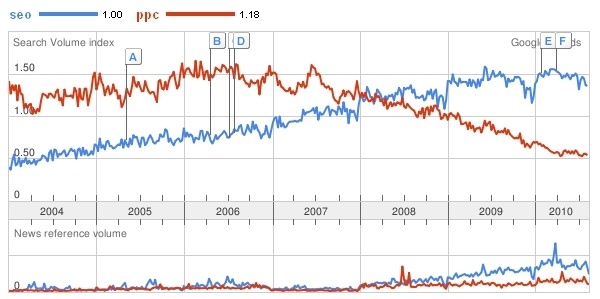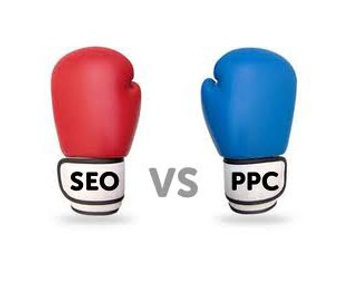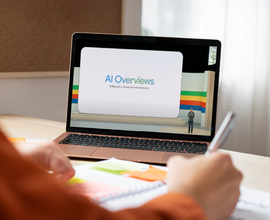SEO vs. PPC: Google Trends Comparison
- Thought Leadership
- By Seth Besmertnik
- 2 minutes read
When you look at Google Trends data, you'll discover a lot about how businesses prioritize paid and organic search. Here's some insights we've found.
When you have a little extra time on a Saturday afternoon, there is nothing like doing keyword wars in Google Trends . Something I've been thinking a lot about lately is the trend of CMO's and marketing organizations thinking more about their SEO initiatives, relative to their paid efforts. Google trends has some interesting data about this topic.
The first interesting item I found was SEO—it's really telling to see the rise in SEO as it relates to people searching for it both on a U.S. and global basis. If you take a look from 2003 to the present there are nearly three times as many searches for the word SEO.

This was pretty interesting, so then I searched for SEO versus PPC to see how the trends compared. This also offered a lot of insight. While SEO is on the rise, year-over-year, it looks like searches for PPC are declining.

This could mean a few things:
- It's possible that people are more sophisticated in regards to PPC and do not need to search and learn about it anymore; since they're already heavily involved in PPC.
- Another option is that PPC is on the decline and this trend highlights people switching their focus to natural search, SEO.
- Lastly, searchers may have increased knowledge of PPC and are searching on a more fragmented basis for terms such as: increasing conversion rates or landing page best practices.
From what Conductor has seen in the marketplace, SEO is on the rise and becoming a larger and larger priority for organizations of all sizes. On the other hand paid search is something companies have been doing well for a while. Now they're looking for the next "big break" opportunity, which in many cases is SEO.
The data from Conductor's recent Natural Search Visibility reports of the Fortune and Internet Retailer 500 shows that there's clearly a growth opportunity available to companies who invest in natural search. The Fortune 500 as a whole is virtually invisible in natural search, with 85% of companies analyzed not appearing in natural search results until at least the 8th page for their most expensive paid keywords. The Internet Retailer 500 performs a bit better, but still has a lot of room for growth. Looking at these results it is evident that the world is very curious and proactive about learning SEO, which is proven by the Google trends data.








